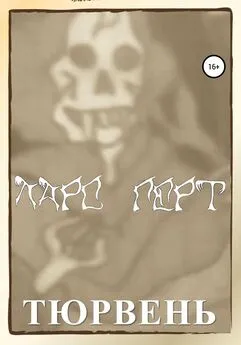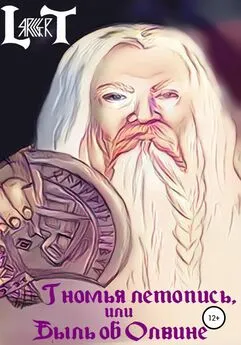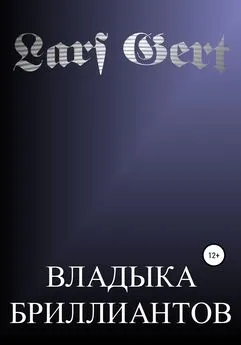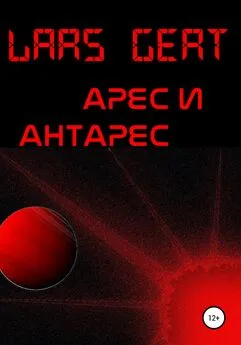Lars Iyer - Spurious
- Название:Spurious
- Автор:
- Жанр:
- Издательство:Melville House
- Год:2011
- ISBN:нет данных
- Рейтинг:
- Избранное:Добавить в избранное
-
Отзывы:
-
Ваша оценка:
Lars Iyer - Spurious краткое содержание
In a raucous debut that summons up Britain's fabled Goon Squad comedies, writer and philosopher Lars Iyer tells the story of someone very like himself with a "slightly more successful" friend and their journeys in search of more palatable literary conferences and better gin. One reason for their journeys: the narrator's home is slowly being taken over by a fungus that no one seems to know what to do about.
Before it completely swallows his house, the narrator feels compelled to solve some major philosophical questions (such as "Why?") and the meaning of his urge to write, as well as the source of the fungus… before it is too late. Or, he has to move.
Spurious - читать онлайн бесплатно полную версию (весь текст целиком)
Интервал:
Закладка:
Do I have a real sense of that? W. wonders. Do I really know I am Max Brod rather than Franz Kafka? He doubts it, he says, which is why I never know the extent of my usurpation. For I am a usurper, says W.; I’ve stolen his place and the place of everyone. Who haven’t I betrayed? What crime haven’t I committed?
Still, says W., his burden is to take on my wrongdoings as though they were his own. It’s all his fault, says W., even though it’s all my fault. This is because he is certain he is Max Brod, while I still think I’m Franz Kafka.
You should never hang onto a conversation, says W. Once it’s finished, pfft , it’s finished. — ‘I forget everything you say as quickly as that’ , W. says, snapping his fingers in the air. I, on the contrary, remember everything, and not only that. — ‘You make things up’, W. says. I wholly invent conversations we are supposed to have had, but in fact we never did have. I’m a fantastist, W. says, a dreamer, but for all that, I’m not without guilt. I’m no holy fool, W. says, no innocent. A fool, yes, but holy — not a bit of it.
I am neither an Eckermann nor a Boswell, W. says. I’m his ape, says W. and (remembering Benjamin’s comment on Max Brod) a question mark in the margin of his life. Well, more like an exclamation mark, says W., or a shit stain.
Of course, W. never mistakes himself for Kafka, as I do. He’s never thought himself anything other than a Max Brod. But the point is — this is W.’s first principle — the other person is always Kafka, which is why you should never write about them or hold on to their conversations, let alone make them up. Yes, the other person is always Kafka, W. says, even me. He knows that, says W., why don’t I?
You have to know you’re not Kafka, says W., that’s the first thing. But you have to know that the person you’re speaking to might be Kafka, that’s the second. This is why conversation, for W., is always a matter for hope. The very ability to speak, to listen and respond, is already something, he says.
Of course, to speak to the other, to respond, is already to betray. Whatever you say is a betrayal, even if at the same time it is suffused with hope. That the other person might be Kafka is a perpetually present possibility , says W. And that you are also the Brod who betrays Kafka is the destruction of this possibility, its disavowal.
In what sense is he Brod? W. wonders. He knows the answer, he says. He never listens enough. He never gives himself over to what is being said. He always comes up short, says W., very short, which is why he always feels troubled when he speaks, yet at the same time always wants to push conversation towards the messianic.
‘Even you’, says W., ‘even you might be Kafka, which would be a great miracle’. Of course, on the other hand, I’ll never be Kafka for myself , but only for him, my conversationalist. The other person is never other for himself , says W. Or only rarely.
For haven’t we along the way met thinkers — real thinkers — who speak without a concern for themselves, without any sense of self-preservation? It’s as though what they say is indifferent to them, we agree. As though they are borne by thought, thought by it, rather than the other way round.
Yes, we have been fortunate to meet real thinkers, W. and I agree. It was our great good fortune. But wasn’t it also our curse? Didn’t we have confirmed for us that of which we would not be capable, that of which we above all would not be capable? It’s important to know your limitations — on that we’re agreed — but to have them reconfirmed so often; to have the sense of them closing around you like a cage?
We’re being suffocated, we agree. How can we breathe? But an encounter with a real thinker is precisely that breath. How is it possible, the sense that, with a thinker, a thought is shared between us? How is it possible that we believe ourselves to participate in thinking? Thought seems to occur between us. It seems to flow there, as though we were gathered around a mountain stream, around thought in its freshness, eternally streaming.
Ah to be near the source, at the beginning point! To have reached the highest, widest plateau with only the flashing stars above us! That’s where these thinkers bring us; that’s the vista their thought provides. Yes, we have seen the heights; thoughts, pure and fresh, have passed beside us.
Were we the condition of thought? We were only its occasion, alas. Someone spoke to us; we looked interested. Someone spoke; we listened. That was it. And thinking welled up around us like a great flood, and there were fishes in that flood, fish-thoughts streaming by us.
That was it, and nothing more. And with what were we left when the flood subsided? Where were we beached but on the valley-bottom of our stupidity, on the parched sands that no thought might cross?
W. sends me a quotation from his notebook:
For the youth of the world is past and the strength of creation already exhausted and the advent of times is very short. Yea, they have passed by, and the pitcher is near to the cistern and the ship to the port and the course of the journey to the city and life to its consummation .
It’s from the Syriac Book of Baruch , a pseudo-epigraphic text from the period of the destruction of the temple, he says. Then he sends me another:
The world endlessly becomes itself, but because this process is endless the world never is the end towards which it moves. Similarly, God endlessly becomes himself by not being what the world has become, but because the world never becomes itself, neither does God become himself .
That’s from Samuelson’s Judaism and the Doctrine of Creation , W. says. It’s meant to be an explanation of Rosenzweig’s idea of creation. W. says I am endlessly failing to become what I am not. A thinker. A good person. A true friend.
Then he sends me a third, from Mascolo’s Le Communisme , the greatest of all, he says, and to which he attaches no commentary:
One writes neither for the true proletarian, occupied elsewhere, and very well occupied, nor for the true bourgeois starved of goods, and who have not the ears. One writes for the disadjusted, neither proletarian nor bourgeois; that is to say, for one’s friends, and less for the friends one has than for the innumerable unknown people who have the same life as us, who roughly and crudely understand the same things, are able to accept or must refuse the same, and who are in the same state of powerlessness and official silence .
Outside, half an inch of rendering now covers the back of the kitchen, I tell W. Today I placed my palm on its grey surface. Wet. Everything’s wet, on both sides of the wall. Apparently there’s a gap between two layers of brick. A gap — that’s where the source of the damp is, I know it, I tell W. That’s where it is: dark, wet matter without shape. Matter without light, as there is in dwarf galaxies stripped of gas.
And the damp’s still spreading. There’s still more of the wall to conquer. ‘It’ll be in your living room soon’, says the damp expert. I nod. Yes, it will be everywhere. The flat will be made of damp, and spores will fill every part of the air. And I will breathe the spores and mould will flower inside me. And I’ll live half in water, like a frog.
It is my own catastrophe, I tell W., it’s very close to me. A secret catastrophe, spreading from the gap between the layers of brick. I take people out there, to the kitchen, and run their hands along the wall. — ‘Feel it’, I say, ‘it’s alive’. They’re always impressed and disgusted.
W.’s book has come out, he says. His editor went down to dine with W. and brought him twenty copies of his own book. His editor proofread the manuscript several times and sent it out for proofreading. His book looks great, says W., except for the ancient Greek, which looks terrible. The Hebrew is okay, but the ancient Greek looks as though it were drawn by a child. It’s hilarious.
His book is better than him, W. and I agree. It’s greater. What’s it about? I ask him of a particularly difficult section. He’s got no idea, he says. The book seems to stream splendidly above us both. Neither of us can follow it. Ah, the long example of his dog! It’s even better than the sections on children in his previous book! W. says he’s amazed too. How did he manage it?
I’m filling in my esteem indicators, I tell W. — ‘Oh yes, what are they?’ He could do with a laugh, says W. ‘How about humiliation indicators? Or soiling yourself indicators?’, says W. ‘Write about the history of your humiliations’, says W. ‘Write about dragging the rest of us down. Write about spoiling it for everyone, because that’s what you’ve done’.
I hold my pen like an ape, W. has always observed, and no doubt I type like an ape too, my fingers slightly too large for the keys. And my book reads as though it were written by an ape, which is the worst thing of all, W. says.
‘Once you were happy on your savannah’, W. says. ‘You were happy romping about with the whole horizon before you. What made you think you could read, let alone write? How did you end up mistaking yourself for a writer?
‘Behold the idiot! That’s what your book proclaims’, says W. ‘Wouldn’t you like to go back to your savannah now? Wouldn’t you like to hoot and romp with your fellow apes?’
Why do I write such bad books? W. wonders. It’s not even that they’re bad at the level of content, which of course they are. The basics aren’t even in place. The fundamentals. — ‘You can’t write’, says W. ‘You’re incapable of placing one word after another’.
Of course, my book was a lesson to him, W. says. His book, he decided, would be as good at the level of style as mine is bad, which is not to say it would be worthwhile at the level of content . But at least it would be legible, says W. At least it would pass the minimum qualification for what would count as a book.
W.’s reading the notes he took ten years ago. — ‘They’re better than anything I could do now’, he says, sending me them. I agree: they are good. ‘I had no girlfriend, barely any work, no television, and above all, no friend called Lars …’ But didn’t W. credit me with freeing him to write? Didn’t I save him from years of writer’s block? All I taught him was shamelessness, W. says. Compromise and half measures — that’s all I taught him.
W. reminds me of the Hasidic lesson Scholem recounts towards the end of his great study of Jewish mysticism.
When he was confronted by a great task, the first Rabbi, about whom little is known — his name and the details of his life are shrouded in mystery — would go to a certain place in the woods, light a fire and meditate in prayer; and what he wanted to achieve was done.
A generation later, the second Rabbi — his name is not known, and only a few details have been passed down concerning his life — confronting a task of similar difficulty would go to the same place in the woods, and say, ‘We can no longer light the fire, but we can still speak the prayers’. What he wanted to achieve was done.
Another generation passed, and the third Rabbi — whose name is known to us, but who remains, for all that, a legendary figure — went to the woods and said, ‘We can no longer light the fire, nor do we know about the secret meditations belonging to the prayer. But we do know that place in the woods to which it all belongs — and that must be sufficient’. And what the Rabbi wanted to achieve was done.
Читать дальшеИнтервал:
Закладка:










